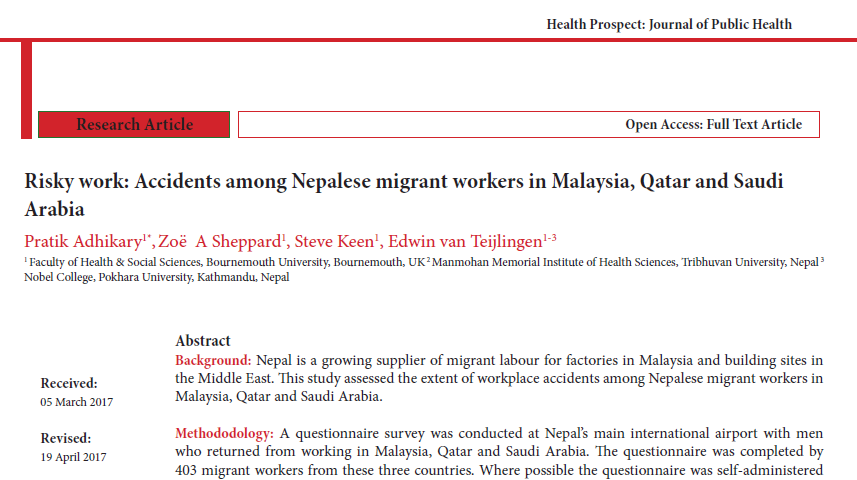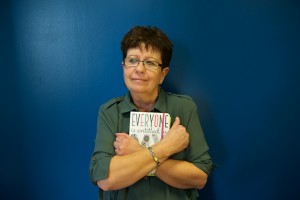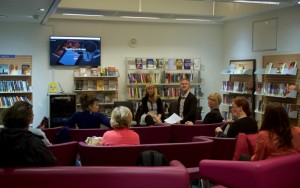
RKEO was invited to a Humanities and Social Science (HSS hereafter) Research Offices Afternoon, organised by the Wellcome Trust, with a view of establishing relationships and improving the strength and diversity of research they receive and fund.
We were briefed on the HSS funding remit and available funding schemes; on developing competitive applications; the application review process, etc.
Some of the highlights include the following:
ᴥ Wellcome trust funds health, social, cultural and economic research.
ᴥ Theme-based seed awards help researchers to develop compelling and innovative ideas that will go on to form part of larger applications.
ᴥ When applying for funding, it’s important to state:
- Your experience & contribution
- What you want to achieve
- How your planned activities link to achieve the overall aims
- Who – partners, stakeholders, etc
- Your budget
ᴥ When developing your funding proposal, it’s important to work Wellcome Trust key messages and strategies into it.
ᴥ Funding decisions and recommendations are decided by multi-disciplinary committees. It is therefore important to ensure that your proposal can be understood outside of your field/ discipline.
ᴥ It is highly recommended for proposals to have pre-submission input from colleagues within and beyond your own field.
ᴥ Small grants, seed awards and studentships go through a one-stage application process.
ᴥ Research fellowships and research awards for health professionals go through a three-stage application process:
Expression of interest → Triage → Full application
ᴥ There is currently no requirement for the pathways to impact statement/ document on grant applications.
ᴥ Non-academic impact is viewed positively on applications.
ᴥ Wellcome funds ambitious, innovative and high quality research. Innovative and ambitious means:
- The use of interdisciplinary methods
- Genuine interdisciplinary research
ᴥ At the preliminary stage, it’s important that applications/proposals be treated as a summary of the full application, with careful considerations for research ethics and data management (avoid depending on generic text)
ᴥ The use of generic text is strongly advised against – the letter of support from the Uni should be personalised to better fit the context of the proposed research
ᴥ What makes a successful application from a reviewer’s point of view?
- Innovative
- Unusual project
- Methodologically rigorous
- Sound
- The right person doing the right project at the right place
- A project fails when jargons and key terms are not explained successfully
- Must detail = why this is an important project; why they are the right people to do it; why the location
- Research ethics carefully considered; timetable is realistic; costing not outlandish



 we were fortunate to be included in the programme for
we were fortunate to be included in the programme for  planned for December 15 in Brighton’s Media Centre. Here we will be featuring the stories we are producing based on photographs and audio recordings captured during the workshops. We will also be hearing from some of the storytellers from all three workshops (Bournemouth, Brighton and Sheffield) about their experiences of the workshops and how this opportunity has opened new doors for them.
planned for December 15 in Brighton’s Media Centre. Here we will be featuring the stories we are producing based on photographs and audio recordings captured during the workshops. We will also be hearing from some of the storytellers from all three workshops (Bournemouth, Brighton and Sheffield) about their experiences of the workshops and how this opportunity has opened new doors for them. The Global Challenges Research Fund (GCRF) offers a unique opportunity for the Arts and Humanities Research Council (AHRC) and the MRC to launch a global public health initiative that responds to the challenge of bringing together expertise in medical science and health interventions in developing countries, with arts and humanities research bringing an understanding of local knowledge and history, cultural and historical contexts and dynamics, community engagement, and trust.
The Global Challenges Research Fund (GCRF) offers a unique opportunity for the Arts and Humanities Research Council (AHRC) and the MRC to launch a global public health initiative that responds to the challenge of bringing together expertise in medical science and health interventions in developing countries, with arts and humanities research bringing an understanding of local knowledge and history, cultural and historical contexts and dynamics, community engagement, and trust.










 New weight change BU paper
New weight change BU paper One week to go! | The 16th Annual Postgraduate Research Conference
One week to go! | The 16th Annual Postgraduate Research Conference Geography and Environmental Studies academics – would you like to get more involved in preparing our next REF submission?
Geography and Environmental Studies academics – would you like to get more involved in preparing our next REF submission? Congratulations to three former BU staff
Congratulations to three former BU staff Applications are now open for 2025 ESRC Postdoctoral Fellowships!
Applications are now open for 2025 ESRC Postdoctoral Fellowships! Horizon Europe – ERC CoG and MSCA SE webinars
Horizon Europe – ERC CoG and MSCA SE webinars ERC grants – series of webinars
ERC grants – series of webinars MaGMap: Mass Grave Mapping
MaGMap: Mass Grave Mapping Last reminder – MSCA Postdoctoral Fellowships 2024 internal deadline next week
Last reminder – MSCA Postdoctoral Fellowships 2024 internal deadline next week